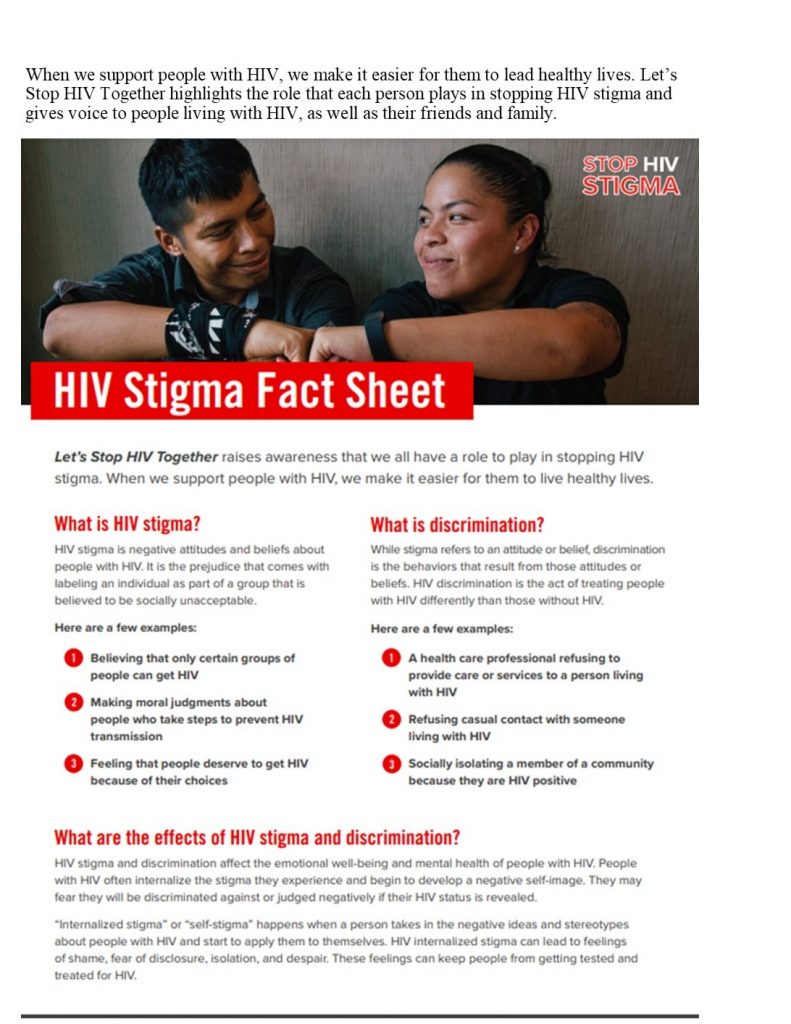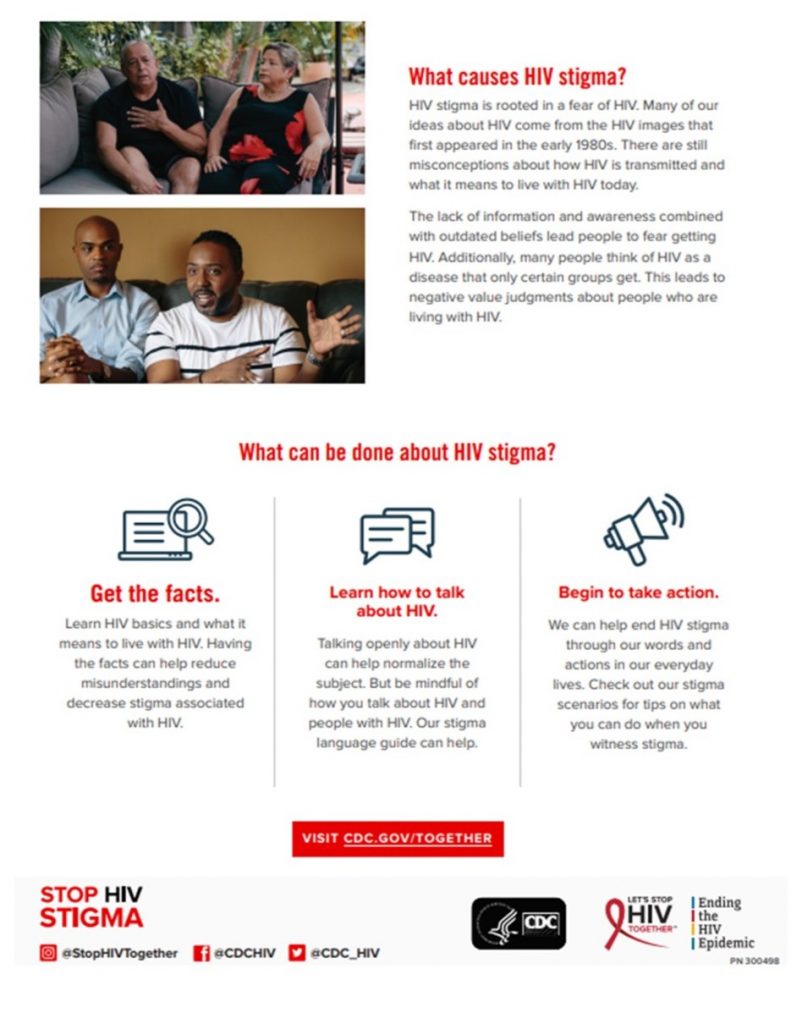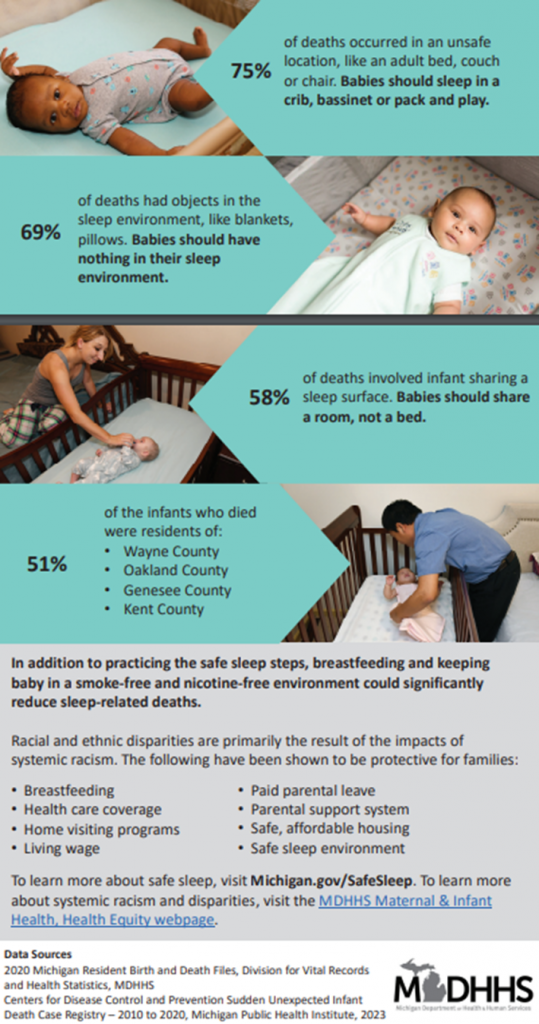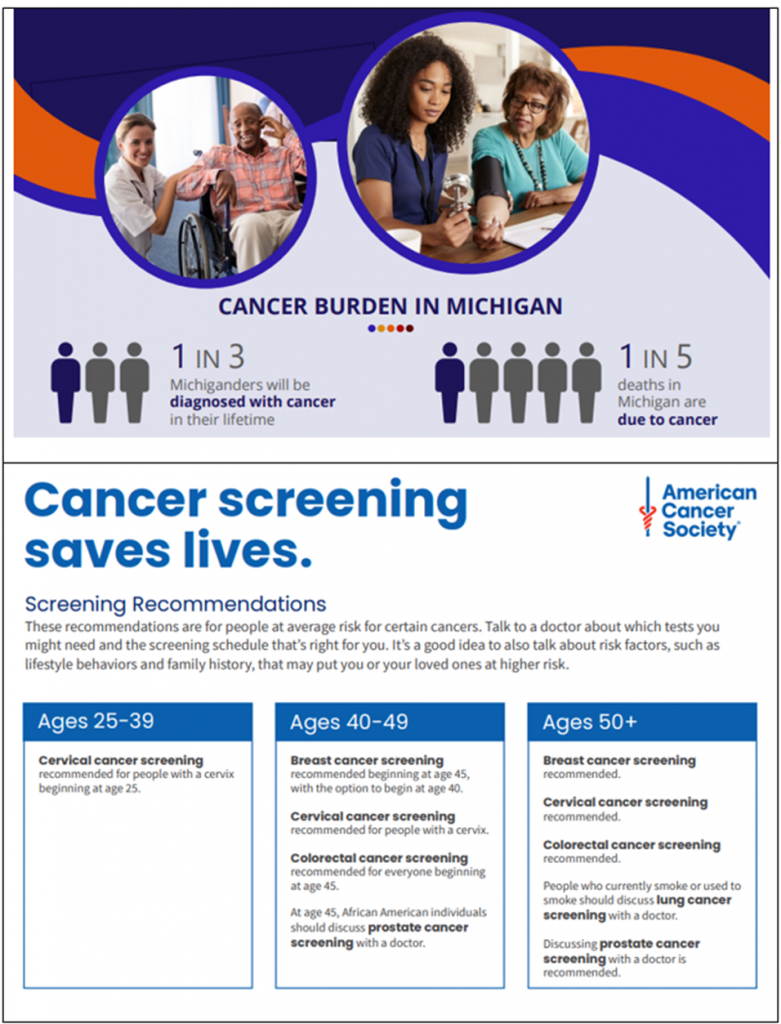News
-
June 25, 2024
Let’s Be the Generation to End HIV. Get Tested and Stop the Stigma.

Retrieved from https://www.cdc.gov/stophivtogether/hiv-testing/index.html
https://www.cdc.gov/stophivtogether/hiv-testing/talk-testing.html
https://www.cdc.gov/stophivtogether/library/topics/testing/palm-cards/cdc-lsht-testing-palmcard-african-american-women.pdf


Retrieved from https://www.cdc.gov/stophivtogether/hiv-stigma/index.html
https://www.cdc.gov/stophivtogether/library/stop-hiv-stigma/fact-sheets/cdc-lsht-stigma-factsheet.pdf -
June 13, 2024
Treatment of Possible Nonoccupational HIV Exposure
Post-exposure prophylaxis (PEP) is the use of antiretroviral medication to prevent HIV infection in an HIV-negative person who has had a specific high-risk exposure to HIV. Such exposure typically occurs through sex or sharing syringes (or other injection equipment) with someone who has or might have HIV. PEP initiation should be considered in people whose vagina, rectum, eye, mouth or other mucous membrane, nonintact skin, or perforated skin (e.g., needle stick) comes into contact with body fluids from a person with HIV, as long as exposure has occurred within a 72-hour window. See the Figures below for two options of a 28-day course of a three-drug antiretroviral regimen. IPH is located at 9053 Woodward Ave, Detroit, Monday to Friday, 8:30 AM to 4:00 PM. Call 313-309-9350 ext. 2 for more information on HIV testing, PrEP, and PEP

Retrieved from https://www.cdc.gov/hivnexus/hcp/pep/index.html
https://www.cdc.gov/hivnexus/media/pdfs/2024/04/cdc-lsht-prevention-brochure-pep-faq-provider.pdf
https://hivinfo.nih.gov/understanding-hiv/fact-sheets/post-exposure-prophylaxis-pep
https://www.cdc.gov/hiv/pdf/library/consumer-info-sheets/cdc-hiv-consumer-info-sheet-pep-101.pdf
https://www.cdc.gov/hiv/prevention/pep.html?CDC_AAref_Val=https://www.cdc.gov/hiv/basics/pep.html
https://www.cdc.gov/hiv/prevention/pep.html

This is the preferred PEP regimen for otherwise healthy adults and adolescents

This is an alternative regimen for otherwise healthy adults and adolescents -
-
May 30, 2024
Create a Safe Sleep Environment for Your Baby
There are about 3,400 sleep-related deaths among US babies each year. In 2020, there were about 1,389 deaths due to sudden infant death syndrome (SIDS), about 1,062 deaths due to unknown causes, and about 905 deaths due to accidental suffocation and strangulation in bed. 1,597 babies died due to sleep-related causes in Michigan from 2010-2020. 75% of deaths occurred in an unsafe location, 69% of deaths had objects in the sleep environment, and 58% of deaths involved an infant sharing a sleep surface. See the Figure below. Between 2010 and 2017, there were 254 sleep-related infant deaths in the City of Detroit. Babies sleep safest when they sleep Alone, on their Backs in a bare Crib. Babies should not sleep with pillows, no blankets, and no toys. Babies should sleep in a smoke-free and nicotine-free environment. Create a safe sleep environment. Protect your baby from sleep-related infant deaths.

Retrieved from https://www.michigan.gov/mdhhs/-/media/Project/Websites/mdhhs/Folder4/Folder27/Folder3/Folder127/Folder2/Folder227/Folder1/Folder327/Sleep-Related_Infant_Death_Infographic.pdf?rev=59f86f77532a483ab41780cef6b51410&hash=870EEC4BF1F4E31DA3E0B4E86905F45E
https://www.mifrp.org/wp-content/uploads/SRD-Fact-Sheet_City-of-Detroit.pdf
https://safetosleep.nichd.nih.gov/about/other-sleep-related-deaths
https://safesleep.mo.gov/about-safe-sleep/
https://safesleep.mo.gov/abcs-of-safe-sleep/
https://www.cdc.gov/reproductive-health/features/babies-sleep.html?CDC_AAref_Val=https://www.cdc.gov/reproductivehealth/features/baby-safe-sleep/
https://safetosleep.nichd.nih.gov/about/by-the-numbers
https://www.cdc.gov/sids/about/index.htm
https://www.michigan.gov/mdhhs/safety-injury-prev/safe-sleep2/safe-sleep-for-your-baby
https://www.michigan.gov/mdhhs/safety-injury-prev/safe-sleep2/safe-sleep-for-your-baby/accordion/keep-your-baby-sleeping-safely/safe-sleep-steps -
May 28, 2024
Cancer Screening Saves Lives
602,347 people died from cancer, and 1,603,844 were new cases of cancer reported in 2020 in the United States. 21,150 Michiganders died from cancer in 2020, and 58,360 new cases in Michigan. 1 in 5 deaths in Michigan are due to cancer, and 1 in 3 Michiganders will be diagnosed with cancer in their lifetime. See the Figure below. Cancer is the second leading cause of death in Michigan and the United States. Cancer screening and early detection save lives and reduce the burden of cancer. Getting screening tests regularly may find breast, cervical, and colorectal (colon) cancers early when treatment is likely to work best. American Cancer Society recommends breast cancer screening beginning at age 45 with the option to start at 40 and colon cancer screening for everyone beginning at age 45. Mammograms are the best way to find breast cancer early when it is easier to treat. Regular colon cancer screening tests like colonoscopy help prevent colon cancer by identifying and removing polyps before polyps turn into cancer. Cancer screening saves lives. See the Figure below. Get screened. Get breast and colon cancer screening tests to help find breast and colon cancers early, when they may be easier to treat. IPH is located at 9053 Woodward Ave, Detroit, Monday to Friday, 8:30 AM to 4:00 PM. Call 313-309-9350 ext. 2

Retrieved from https://ftp.cdc.gov/pub/Publications/Cancer/ccc/michigan_ccc_plan-508.pdf
https://www.cancer.org/content/dam/cancer-org/online-documents/en/pdf/flyers/cancer-screenings-save-lives.pdf
https://gis.cdc.gov/Cancer/USCS/#/AtAGlance/
https://www.michigan.gov/-/media/Project/Websites/mdhhs/Folder50/Folder12/Cancer_Burden_Report_2020.pdf?rev=706b1ab65e0f4772bcf0fbbbb7f330ed
https://ftp.cdc.gov/pub/Publications/Cancer/ccc/michigan_ccc_plan-508.pdf
https://cancerstatisticscenter.cancer.org/#!/state/Michigan
https://www.cdc.gov/cancer/prevention/index.html
https://www.cdc.gov/cancer/prevention/screening.html
https://www.cdc.gov/breast-cancer/screening/index.html
https://www.cdc.gov/colorectal-cancer/screening/index.html
https://www.cancer.org/cancer/screening/get-screened.html
https://www.cancer.org/cancer/screening.html



